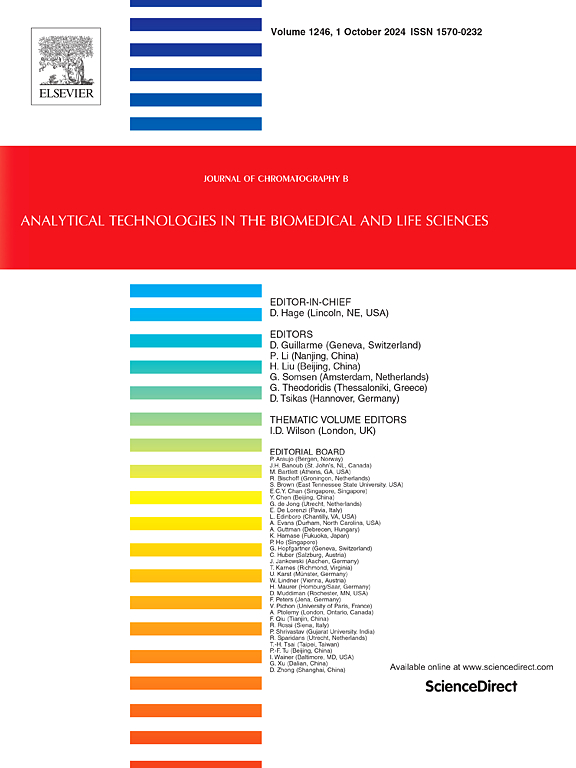在发现化学中实现更快、更环保的肽纯化
IF 2.8
3区 医学
Q2 BIOCHEMICAL RESEARCH METHODS
引用次数: 0
摘要
多肽吸引了整个制药行业的广泛兴趣,因为它们具有巨大的治疗潜力,可以给高价值靶标提供药物,并且灵活的给药和配方选择可以改善患者的可及性。随着业界越来越关注基于多肽的发现项目,快速、高通量和绿色的纯化方法变得越来越有价值。由于肽的序列和物理化学多样性,快速纯化大型文库仍然是一个挑战。在这里,我们描述了肽的高通量纯化(HTP)方法的发展,其中每次纯化在6分钟或更短的时间内完成,与传统方法相比,在时间和溶剂消耗方面大幅减少,同时保持高纯度水平。该方法依赖于反相高效液相色谱(RP-HPLC),利用双泵制备系统和短聚焦溶剂梯度来减少纯化时间,实现高效和加速的高通量纯化。本文章由计算机程序翻译,如有差异,请以英文原文为准。
Enabling faster and greener peptide purification in discovery chemistry
Peptides are attracting broad interest across the pharmaceutical industry owing to their vast therapeutic potential for drugging high-value targets and flexible dosing and formulation options to improve patient access. As the industry increases focus on peptide-based discovery programs, fast, high-throughput, and green purification methods have become increasingly valuable. Due to the vast sequence and physicochemical diversity of peptides, expedited purification of large libraries has remained a challenge. Herein, we describe the development of a High-Throughput Purification (HTP) approach for peptides wherein each purification is achieved in 6 min or less, representing a substantial reduction in time and solvent consumption compared with conventional methods, all while maintaining high purity levels. This approach relies on Reversed-Phase High-Performance Liquid Chromatography (RP-HPLC), leveraging a dual pump preparative system and short focused solvent gradients to reduce purification times and achieve highly efficient and accelerated high-throughput purification.
求助全文
通过发布文献求助,成功后即可免费获取论文全文。
去求助
来源期刊

Journal of Chromatography B
医学-分析化学
CiteScore
5.60
自引率
3.30%
发文量
306
审稿时长
44 days
期刊介绍:
The Journal of Chromatography B publishes papers on developments in separation science relevant to biology and biomedical research including both fundamental advances and applications. Analytical techniques which may be considered include the various facets of chromatography, electrophoresis and related methods, affinity and immunoaffinity-based methodologies, hyphenated and other multi-dimensional techniques, and microanalytical approaches. The journal also considers articles reporting developments in sample preparation, detection techniques including mass spectrometry, and data handling and analysis.
Developments related to preparative separations for the isolation and purification of components of biological systems may be published, including chromatographic and electrophoretic methods, affinity separations, field flow fractionation and other preparative approaches.
Applications to the analysis of biological systems and samples will be considered when the analytical science contains a significant element of novelty, e.g. a new approach to the separation of a compound, novel combination of analytical techniques, or significantly improved analytical performance.
 求助内容:
求助内容: 应助结果提醒方式:
应助结果提醒方式:


